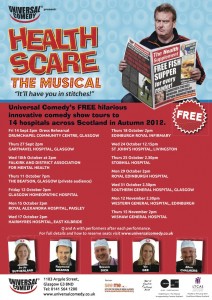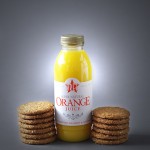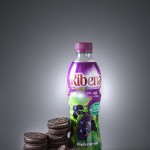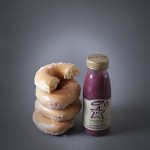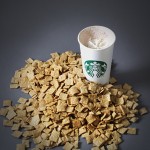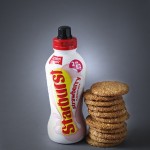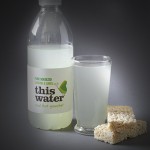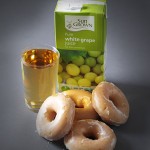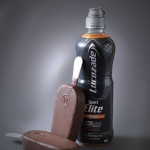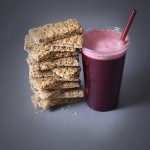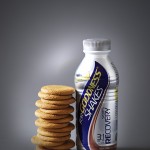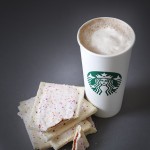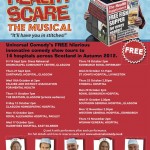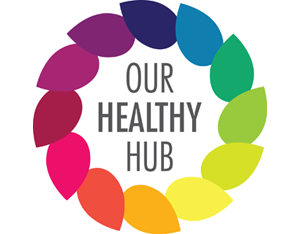Hi Everyone
As you know we try and be sociable on Facebook and Twitter and I posted this tweet from the daily mail about The 15 WORST Health Drinks in Britain. The author Dr Sebastian Winckler from DrEd got in contact with us and has furthered what he wrote about in the daily mail for our readers!
Sugar Toxicity: The Devil In Your Drink
Interview on the dangers of sugar, and how to cut down your sugar intake with Dr Sebastian Winckler. Sebastian is a registered GP, health fanatic, former Army doctor (who served in Bosnia, Afghanistan and Cambodia), and occasional long distance runner. He currently works as Medical Director for DrEd, an online doctor service.
So, what’s wrong with sugar Doc?
Recent research has shown evidence that sugar is the real villain in the fight against obesity, and not fat, as was previously thought. In a new book ‘Fat Chance: The Bitter Truth About Sugar’, Dr Robert Lustig likens the sweet stuff to drugs such as cocaine and heroin, and says that we must wean ourselves off it.
And it’s not just fizzy drinks that are the problem. Up until now, it was thought that fizzy drinks were bad for you, but fruit juice was good for you. But that logic now seems to be wrong. Fruit juice contains just as much sugar as Coke, and affects the body in much the same way – fact.
Isn’t this just another health scare?
I don’t think so, and there’s a lot of evidence on my side. In the 1970’s it was thought that fat was causing obesity. Food manufacturers stripped all the fat out of their products, but that caused a big problem. The food tasted awful! So what did they do? They rammed their products full of sugar to get the taste back. 30 years later, obesity levels and our waistlines have exploded. And sugar’s to blame.
Is the problem just drinks or all foods?
Both, but drinks are particularly bad. Specifically they’re bad because of the high levels of fructose that they contain. If you eat 120 calories of glucose (two slices of white bread), 80 per cent of it is used by all the organs in the body — every cell can use it — while 20 per cent goes to the liver, where it can be stored without harm. Fructose is different. When you consume fructose (a glass of Orange Juice or Coke), it goes straight to the liver, as nowhere else in the body can metabolise it.
But smoothies are okay right?
Absolutely not. Smoothies contain more fibre than juice, but it has been pulped so heavily that the sugar still goes straight to your liver, so there virtually no better than any other sugary drink
Does this mean I shouldn’t eat fruit?
No! When you eat fruit, fibre forms a protective layer that acts as a barrier to the intestine. This slows absorption of sugar, so the liver has a chance to catch up. In fizzy drinks, fruit juices and smoothies, the barrier has gone, which leads to the liver being overloaded.
What are these sugars doing to my body?
Great question. These sugars are overloading our livers and leading to health issues such as heart problems, diabetes and obesity, which not only affects our quality of life, but also costs the NHS over £6 billion a year.
But I’m not overweight, should I be worried?
It makes absolutely no difference whether you are thin or fat as to whether you get problems from this.
How can I reduce my sugar intake?
- Drink only milk or water
- Sugary treats should be a rarity. Perhaps once a week. Ideally not at all
- Eat the fruit. Don’t drink the juices or smoothies
- When baking or cooking, reduce the sugar in the recipe by a third.
- Watch out for added sugar in foods where you would not expect it. Bread, sauces and dressings are prime examples
Anything else I can do?
Check labels to make sure that you are not consuming sugar ‘by accident’! We found that information is clearly labelled in most cases. The traffic light system for example is a great visual representation of the health facts of that product.
Where some manufacturers do fall down is in mislabelling (in other words hiding) sugar content by using words such as carbohydrate, glucose and dextrose, to describe what is basically sugar. Cheeky!
What’s the perfect amount of sugar to consume?
Dr Robert Lustig has suggested that we need to get our sugar intake down to 6 teaspoons for women and 9 teaspoons for men. For most people that’s a massive reduction, but something we should all be aiming for! Do a test one day and check how much you consume on average, and adapt accordingly.
We are really grateful that Dr Sebastian Winckler took the time to do this article for us!
Make sure you share this with your family and friends.
Thanks,
![]()



